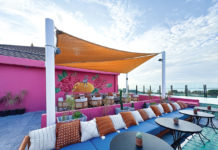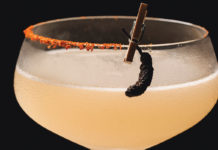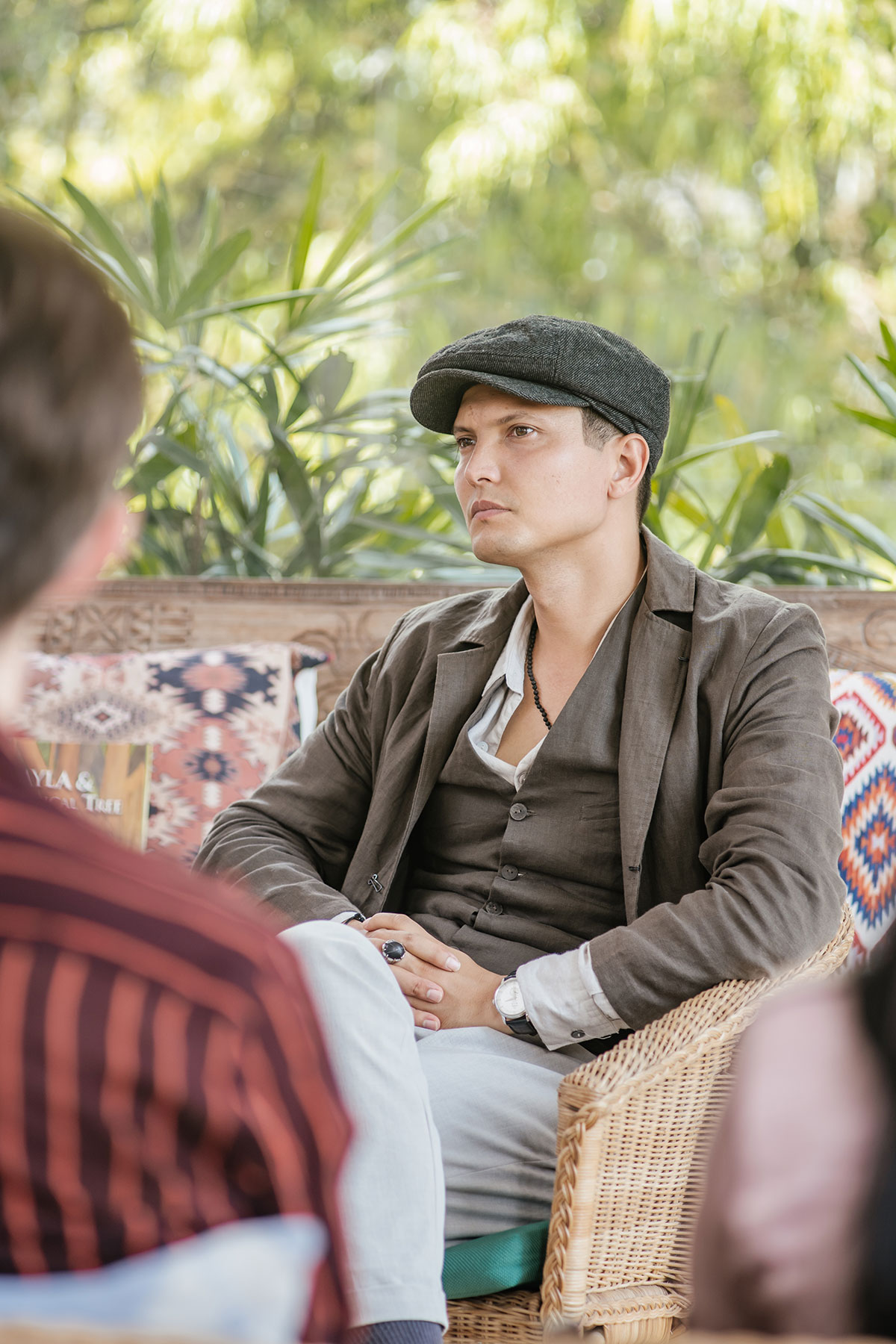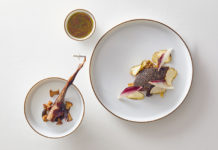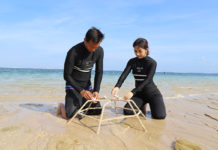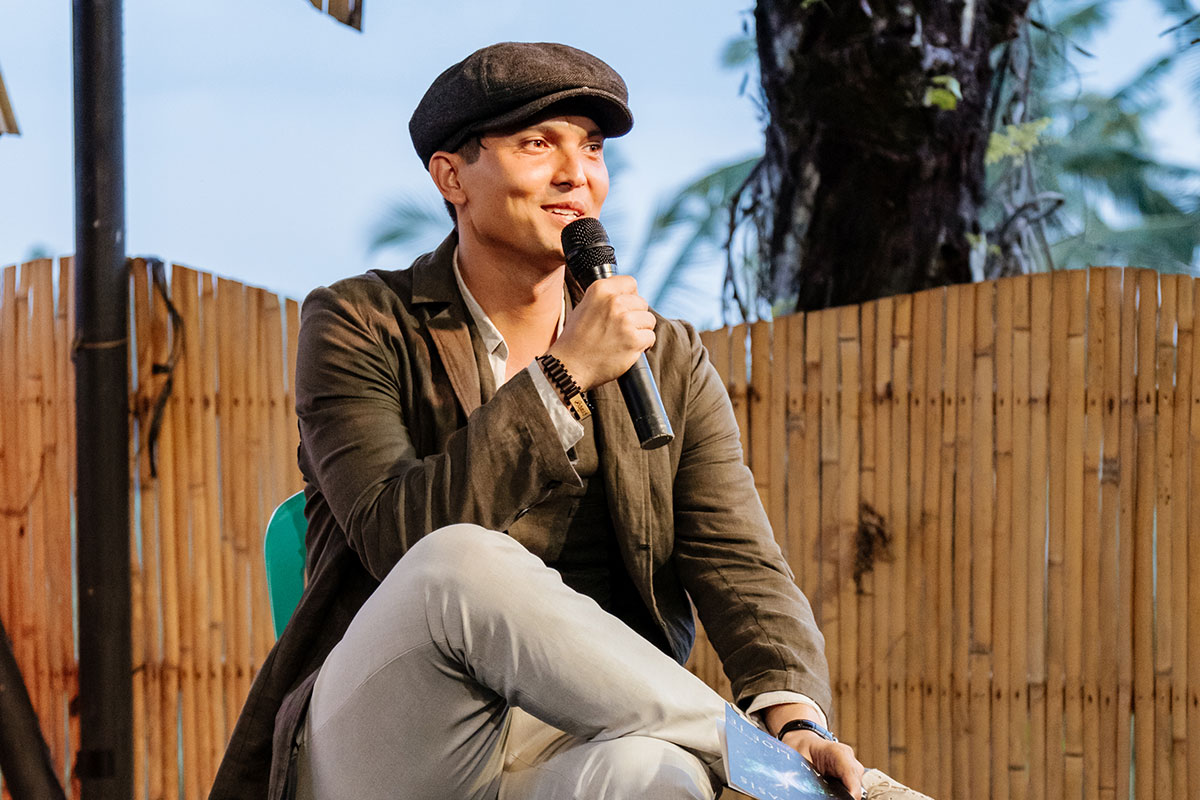 Bagus Ari Saputra is a dynamic force in Bali’s literary and artistic scene – he creates spaces where literature, poetry and culture intertwine. From hosting thought-provoking book club discussions to performing powerful poems, Bagus Ari Saputra, who is also a hotel owner, sparks critical thoughts, celebrates storytelling and preserves Bali’s rich cultural heritage.
Bagus Ari Saputra is a dynamic force in Bali’s literary and artistic scene – he creates spaces where literature, poetry and culture intertwine. From hosting thought-provoking book club discussions to performing powerful poems, Bagus Ari Saputra, who is also a hotel owner, sparks critical thoughts, celebrates storytelling and preserves Bali’s rich cultural heritage.
E: As the founder of the Ubud Book Club, what inspired you to create a community centred around literature in Ubud? How do you see the role of literature in promoting local culture and building community?
A: After moving back to Bali after finishing university in London, I missed the intellectual conversations and stimulation of that environment. Most of my friends here were in business, and conversations tended to revolve around management, licenses and taxes. I felt I needed a different kind of conversation in my life and people I could debate the big questions about the world with, and be challenged that way.
Not everyone sees a book club in the same way. Some might just like the company or be after some good book recommendations. Either way, I like meeting other people who appreciate literature, can think critically and are interested in new ideas, and the pressure that comes with having to read a book before each meeting. It forces me to read books I otherwise would not read, and I think that is healthy.
Literature is an important tool in education and education empowers people to take charge of their own lives, try to improve the conditions they were born into and make more informed decisions. Literature is intricately linked with telling the story of different times and thus cultures and also with preserving notes for posterity.
E: Not just founding a book club, you also had a poetry group, Neverending Poetry Krew. Can you talk more about your activities within the group?
A: NPK (Neverending Poetry Krew) is a Balinese performance group that specialises in spoken word and musicalised poetry. We have three members: me, Imam Barker and Christy Mawar. We have performed for events across Indonesia: Jakarta, Yogyakarta, Surabaya, Bali and Flores, and featured in three different poetry anthologies. We perform in English and Indonesian, and our material tends to centre around social issues and relationships and incorporates both the Deklamasi style and more contemporary spoken word.
E: You wrote poetry too, and your poetry was featured in a poetry collection, Rasasastra, exploring deep emotional and cultural themes. Can you share what inspired you to write the poems and how your life experiences are reflected in your poetry?
A: I write what I consider to be beautiful. I love the written word and gain a deep sense of pleasure from a well-constructed sentence. I write mainly about love and relationships because I think that is what moves us the most as people and creates the most potential for beautiful storylines. But I have also written about themes like the tragedy of 1965 and colonialism and performed the poems at the Ubud Writers & Readers Festival, so it is not all about first glances and flowers.
E: You’ve been involved in events like ‘Poets in the Garden,’ blending poetry with fine dining and art. What is it about the intersection of food, art and poetry that you find so compelling, and how do you think it enhances the audience’s experience?
A: Art is the creation of beautiful things, and we as people experience things on multiple levels through multiple senses. What we tried to do with “Poets in the Garden” together with Chris Salans from Mozaic was create a sense where the olfactory and culinary experience the people were having was melding with the mental and auditory feeling of listening to our poems and stories. I did a similar thing with Voices Unleashed, reading re-tellings of local legends and folk tales paired with food and indigenous music from those areas. The event was called “Stories and Senses.” It’s beautiful to be able to add layer upon layer like that and give people deep, once-in-a-lifetime experiences.
E: You are also renowned as a hotel owner. But running a hotel and being a poet seem like contrasting worlds. How do you navigate these two roles, and how do they complement each other in terms of creativity and business strategy?
A: I am a business person by day, so to speak. It is what pays the bills and enables me to have the lifestyle I do. But I need poetry and the arts as a creative outlet to feel happy and alive. My hotel is a boutique-style art hotel; we employ several local artisans and carvers full-time and our buildings are Balinese heritage buildings. So artistic consideration is prevalent in my business sense, too. When it comes to writing and performing poetry, I don’t bring my business side with me—some compartmentalisation takes place. When I am at Ubud Writers & Readers Festival, I consider myself fully a writer—it’s a world I have been in since before my teens, more than two decades now, so fortunately the transition is not difficult. It’s a world I am always comfortable in, my world.
Bagus Ari Saputra


